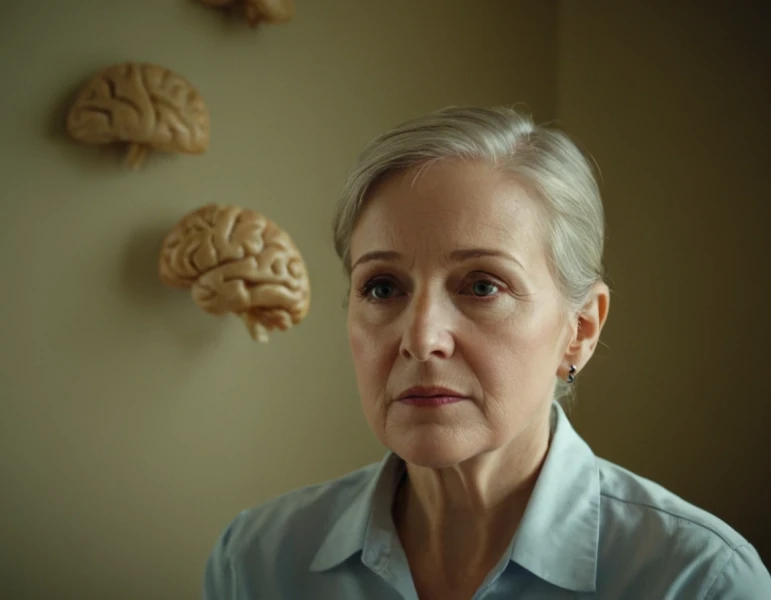Educa UNIVERSITY|SCIENCE AND ENGINEERING
Genetic Alzheimer's
Related Masters
Genetic Alzheimer's
When I first heard about genetic Alzheimer's, I had no idea what that really meant. But, as life often does, it taught me a lesson. I had to live it firsthand and have since become someone who not only knows about the subject, but lives in the know. So, my friend, here I am going to tell you everything you need to know about genetic Alzheimer's. Hold on because this is not just a biology lesson; it's my story and the story of many.
What is genetic Alzheimer's?
Genetic Alzheimer's is a variant of the disease that, as its name implies, has roots in our DNA. Yes, that which we inherited from our parents and grandparents. Now, do not be alarmed, not all cases of Alzheimer's disease have a direct genetic component. According to experts, only 1% of cases are related to deterministic genes, which means that if you have them, sooner or later you will develop the disease. Among these genes are:
- PSEN1 (Presenilin 1)
- PSEN2 (Presenilin 2)
- APP (Amyloid Precursor Protein)
Does that sound like scientific mumbo-jumbo to you? I know, but stay with me. These genes cause certain proteins in the brain to accumulate abnormally, leading to early degeneration. Such cases often appear even before the age of 60.

Are all Alzheimer's hereditary?
Here comes the big question I was asked a thousand times when I was telling my experience: So is it certain that if my grandfather had Alzheimer's, I will have it too? The answer is no. Most cases of Alzheimer's, especially those that appear after the age of 65, are related to risk genes, such as APOE-e4.
This means that having this gene can increase the probability of developing the disease, but it is not a sure sentence. In addition, other factors such as lifestyle, smoking, diabetes, or even lack of mental activity, can play a key role.
My experience with genetic Alzheimer's
Let me speak from the heart. My father was diagnosed with Alzheimer's in his early fifties. At that age, I didn't even think about degenerative diseases; to me, they were the stuff of very old people. But boom, the diagnosis came, and with it, an emotional roller coaster.
In time, I understood that this was not a fluke. There had already been cases of dementia in my family. And when a neurologist explained to us that it could be genetic Alzheimer's, it changed my mind. Suddenly, genetics stopped being just "something interesting" and became personal.
What to do if you have a family history?
First, take a deep breath. Genetic Alzheimer's is not a doom. There are ways to reduce the risk and delay the onset of symptoms. These are the ones I personally adopted and recommend:
- Get genetic screenings. Knowing whether you have genes like APOE-e4 or deterministic ones will help you prepare. It's not being alarmist, it's being smart.
- Physical and mental exercise. Staying active improves brain health. Even something as simple as reading, learning a language or doing crossword puzzles can be a shield against deterioration.
- Feed your brain. Healthy fats, fruits, vegetables and antioxidant-rich foods are an investment for the future.
- Talk to your family. If there are previous cases, it is important for everyone to be aware in order to act in time.
Is there hope?
Although Alzheimer's remains incurable, advances in research are incredible. From treatments to reduce beta-amyloid proteins to studies with gene therapies, there is an army of scientists working to change this story. And let me tell you something: hope lies in the decisions we make today.
Conclusion: Alzheimer's does not define who you are
If my experience taught me anything, it is that knowledge is power. Knowing that there are genetic factors behind Alzheimer's allows you to stay one step ahead. So don't take it as a cross, but as an opportunity to take better care of yourself and support those living with it.
At the end of the day, Alzheimer's is just a part of our story, but it doesn't define who we are. And remember, the brain is a muscle, and every day we can make it stronger
.
Faculties
Trainings
The faculties embrace diverse academic disciplines and fields of study, opening doors to new perspectives and exploring different spheres of wisdom in a constantly evolving world.














